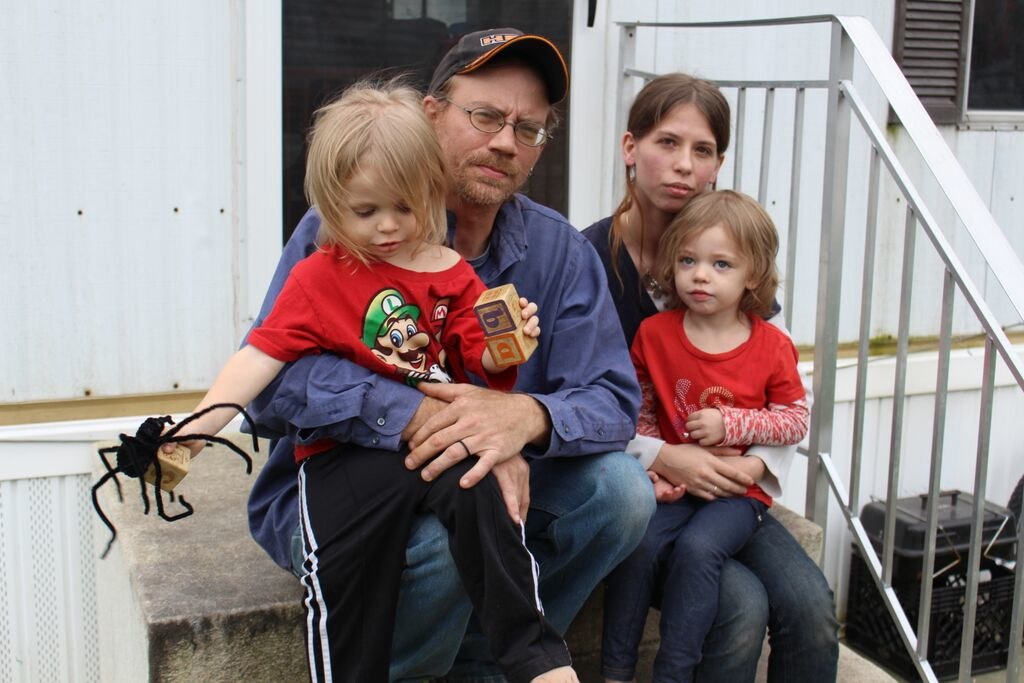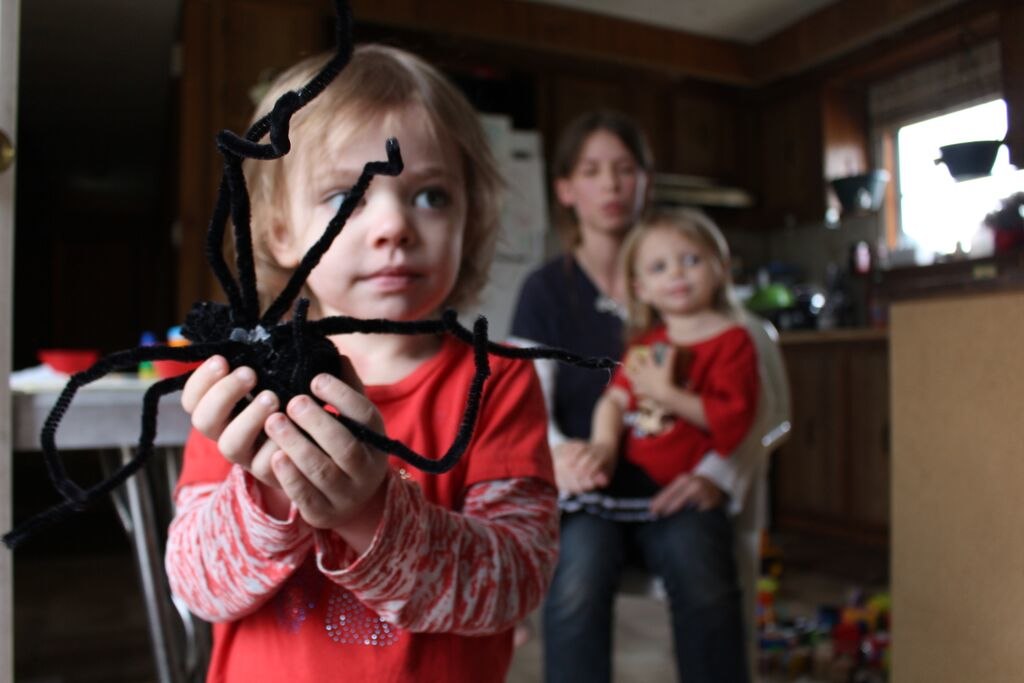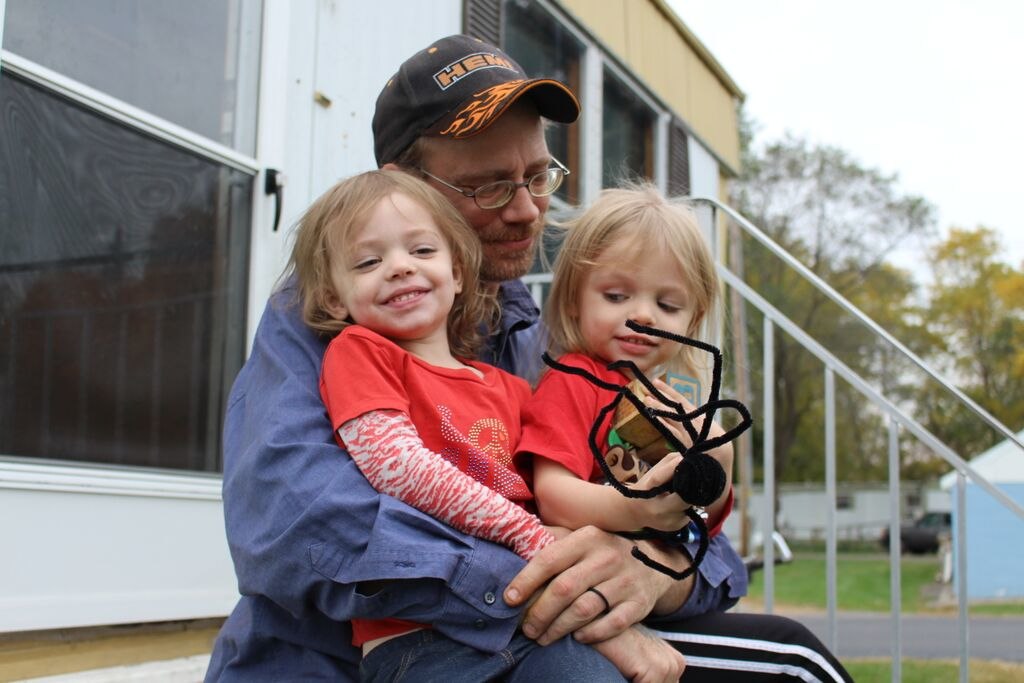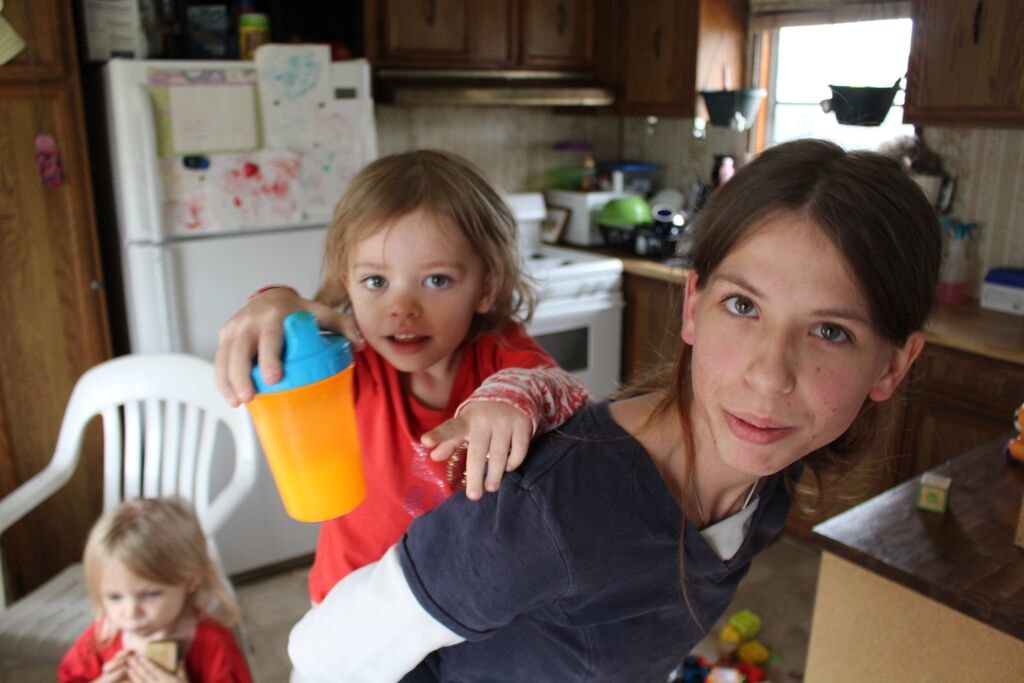Front lines of a broken state
Ever since their Danville, Illinois, apartment building burned down three years ago, Anthony and Ashley Goodwin have been hustling to survive.
Anthony dug through the rubble for three days, searching for his wallet. But after working in tech repair and starting a resale business on eBay to stay afloat, the Goodwins have again found themselves in dire straits.
They don’t have enough money for rent. The gas has been turned off at their home. And Anthony walks three miles to the nearest Wal-Mart to buy groceries. Anthony, Ashley, their three-year-old daughter, Ana, and two-year-old son, Alex, face homelessness by mid-November.
They both want work, but there isn’t much to be found nearby.
“I can’t get a job at any of the 15 employers that hire unskilled labor in our community,” Anthony said. “The jobs aren’t there.”
The Goodwins are far from the exception in Illinois. They are not alone.
Illinois is home to the worst jobs growth in the entire Midwest, and is in a 17-year jobs depression – the state had no more jobs available in September 2015 than it had in July 1998. In Danville, which the Goodwins left behind in search of cheaper housing, both the town’s labor force and total employment have shrunk over the last decade, according to data from the Bureau of Labor Statistics.
When faced with a lack of opportunities, Illinoisans are forced to choose between two options: Beg for help, or pack up and ship out. The state is experiencing record highs for out-migration and enrollment in the Supplemental Nutrition Assistance Program, commonly known as food stamps.
“If we could move out of Illinois, we would,” Ashley said. But her family can’t afford to leave.
The Goodwins have never taken government rental assistance, but their recent struggles have them calling state agencies every day looking for answers. There’s just one problem: Because Illinois doesn’t have a state budget in place, operations have ground to a halt at many social-service departments.
“The homelessness-prevention hotline is disconnected,” Ashley said. “That defeats the whole point of a hotline. It is really frustrating. For the first time in our lives, we are reaching out to the state for help, but there’s no one on the other end of the line.”
The Goodwins’ frustration with the state of Illinois’ welfare programs is matched by their frustration with the state’s jobs climate. “There are very few factory jobs available in Illinois,” Anthony said. “And that just kills small towns like this.” He said he’s had three factory jobs in Illinois over the past 15 years, but each of those employers has moved out of the state.
Anthony couldn’t be more right about the state’s manufacturing climate. Illinois has lost 12,500 factory jobs this year, and is the only Great Lakes state to lose manufacturing jobs over the last three years.
Gov. Bruce Rauner has pushed for reforms to bring Illinois’ manufacturing sector in line with nearby Michigan and Indiana, where manufacturing jobs are booming. But Springfield’s old guard has refused to discuss these reforms, and Democratic supermajorities in both the Illinois House and Senate have failed to pass a balanced budget. Therein lies the gridlock affecting services on which the Goodwins have come to depend.
“This state needs to change things to bring jobs back,” Ashley said. “There are no opportunities for people here. But it’s creating this situation where people who need help can’t get it right now. It’s kind of a catch-22.”
Using her neighbor’s Wi-Fi, Ashley set up a homelessness-prevention fund in order to avoid eviction from the family’s mobile home before mid-November.
Have a story to share?
Tell us how a state or local policy affects your life.
If we decide to feature your story, one of our writers will reach out to you directly.



